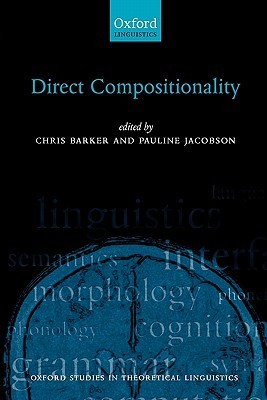What do you think?
Rate this book


448 pages, Paperback
First published March 1, 2007
Dirac had a weird version of quantum theory in which every state had probability either plus two or minus two. Probability, as common sense defines it, is a number between zero and one expressing our degree of confidence that an event will happen. Probability one means that the event always happens; probability zero means that it never happens. In Dirac's Alice-in-Wonderland world, every state happens either more often than always or less often than never.That's an awesome quote which doesn't get nearly as much play as it deserves. Anyway, I stumbled upon Chris Barker's page at the NYU Department of Linguistics, and was pretty thoroughly impressed (despite being bloodsworn to loathe NYU; there's a petulant and uninteresting story about a girl here). The table of contents, with excerpts like:
6. Jacobson Direct Compositionality and Variable Free Semantics: the Case of "Principle B" Effectsis promisingly bewildering (what the devil is a merger effect?) yet also disturbingly familiar enough to inspire worry -- what if everyone else in my lab already knows about and makes rakish use of "free relatives"?
7. Caponigro & Heller The Non Concealed Nature of Free Relatives: Implications for Connectivity in Specificational Sentences
8. Romero Connectivity in a Unified Analysis of Specificational Subjects and Concealed Questions
9. Bhatt & Pancheva Degree Quantifiers, Position of Merger Effects with their Restrictors, and Conservativity
10. Sharvit Two Reconstruction Puzzles